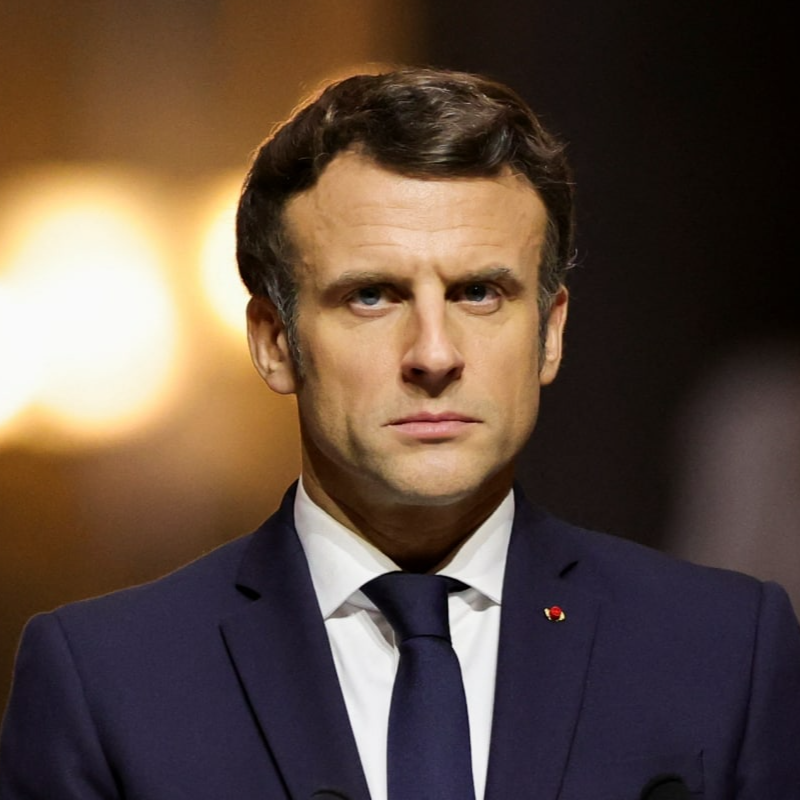
France’s geopolitical and economic influence in Africa faced unprecedented challenges, highlighting the continued decline of French imperialism. This downward trajectory, which has been ongoing for years, underscores the shifting balance of power in a region long dominated by French interests. Since President Emmanuel Macron’s 2017 inauguration, during which he expressed confidence in France’s global power, the country’s position—particularly in Africa—has eroded significantly.
Historically, France maintained a dominant economic role in its former African colonies following the “wave of independence” in the 1960s. However, recent developments have made it clear that French influence in Africa is rapidly diminishing. One stark example is the decline of French market share in Cameroon, which fell from 40% in the 1990s to just 10% by 2021. French companies, once prominent players in African markets, have faced stiff competition from Chinese firms, which have come to dominate infrastructure contracts and other sectors across the continent.
This phenomenon is not limited to Cameroon. A 2018 study conducted by Coface, a subsidiary of the French bank Natixis, revealed that France’s overall market share in Africa had dropped from 11% in 2000 to 5.5% by 2017. In another telling sign of France’s economic retreat, the Bolloré Group, a major French transportation company, sold off its entire logistics and transport subsidiary on the African continent in December 2022. Such developments illustrate the broader trend: French capitalism is struggling to compete with its global imperialist rivals, particularly in Africa, where the rise of Chinese influence has reshaped the economic landscape.
France’s economic retreat in Africa is mirrored by its declining geopolitical and military influence. Since 2013, France has engaged in military interventions in Africa, most notably through Operation Barkhane in the Sahel region. The stated goal of this operation was to combat Islamist insurgents and bolster France’s military and political presence. However, the intervention has largely been deemed a failure. Instead of neutralizing the insurgency, Islamist groups have expanded their reach into new countries, while France’s military presence has become deeply unpopular among local populations and segments of the military leadership. Frustrated with France’s perceived neo-colonial behavior, some African governments have begun to shift their allegiances toward other powers, particularly Russia.
The Central African Republic (CAR) is a case in point. In late 2020, the CAR government, led by President Faustin-Archange Touadéra, requested military assistance from Russia to counter a French-backed rebellion. In response, Russia deployed mercenaries from the Wagner Group, a private military contractor, which successfully repelled the rebellion and recaptured significant portions of the country. In the aftermath of this intervention, Touadéra demanded the departure of French troops from the country, marking a significant blow to France’s influence in the region.
This trend continued in 2021 and 2022, with a series of military coups in Mali and Burkina Faso. In both countries, pro-Russian soldiers overthrew regimes that had been aligned with France. The new Malian and Burkinabe governments subsequently asked French troops to leave and sought Russian military support to fill the void. Within the span of just eighteen months, the French military was forced to evacuate three countries—Mali, Burkina Faso, and the Central African Republic—that had previously been central to its military strategy in Africa.
The competition between France and other global powers, particularly Russia, has increasingly taken the form of a proxy war. This conflict, while driven by the ambitions of the imperialist powers, has had devastating consequences for local populations. For instance, in December 2022, Dimitri Sytyi, a Wagner Group executive in the Central African Republic, was wounded by a package bomb. A few months later, in March 2023, a factory in the CAR capital of Bangui owned by the French company Castel was set on fire, likely in retaliation for Wagner’s growing influence. Meanwhile, a Chinese company operating in the CAR was attacked by suspected pro-French rebels, resulting in the deaths of nine Chinese workers.
The war in Ukraine has further exacerbated tensions between France and Russia, complicating Macron’s attempts to negotiate a resolution to the proxy war in Africa. As both Paris and Moscow continue to vie for influence on the continent, the situation is likely to remain volatile. French imperialism, once a dominant force in Africa, is now facing the stark reality of its decline, with China and Russia emerging as key players in the region.
The ramifications of this power struggle are significant, not only for the workers and populations of Africa but also for the people of France. As French businesses lose their foothold in African markets, the French bourgeoisie will likely seek to offset these losses by intensifying the exploitation of workers at home. Thus, the decline of French imperialism abroad will have direct consequences for labor relations and economic conditions within France itself.
In conclusion, the events of early 2023 highlight the ongoing decline of French imperialism in Africa. As global powers continue to compete for influence on the continent, the workers of both Africa and France are caught in the crossfire. The only path toward breaking this cycle of exploitation and imperialism lies in the solidarity and common struggle of workers across borders. The fight against imperialism, whether in Africa or Europe, requires a united front against the capitalist system that perpetuates inequality and conflict.

